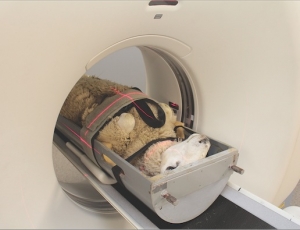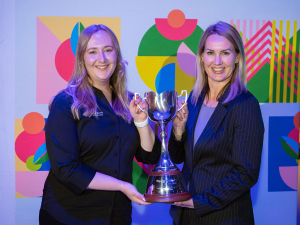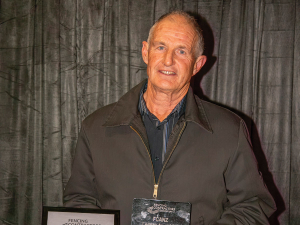The measurement is done by Innervision, a joint venture of Landcorp Farming Ltd and AgResearch.
The scanner replaces an older machine that ran for 18 years.
The company says the scanner, which uses X-ray technology to take cross-sectional pictures (‘slices’) of the body, is valuable for determining meat yield in livestock.
Scientist Neville Jopson says the new scanner is much faster than the old one, scanning a whole carcase in about two minutes rather than two hours previously. A ‘spiral scanning’ feature takes measurements over the entire carcase rather than single-slice views at set points, providing a much better understanding of composition.
“This level of detail means even greater accuracy in determining fat and lean in a carcase or meat cut. That’s massively important for people like meat processors who want to accurately calibrate their carcase grading applications.
“We will be able to process up to 80 animals a day, so the farmers will be pleased we can produce quick results to assist them with identifying desirable meat characteristics for their breeding programme. And the industry will welcome the gold standard level of accuracy.”
The CT scanner will be used mainly to scan farmed sheep and deer. It offers non-invasive indications of meat yield by accurately measuring muscle and fat in the hind leg, loin and shoulder regions. Genetic analysis of those measurements is then used to determine breeding values for farmers.
Jopson says genetic progress over the past 18 years has been considerable.
“As a selection support tool, the CT scanner has been of tremendous benefit to fast-tracking genetic selection. The sheep of today produce considerably more saleable meat off much heavier and leaner carcases than they did two decades ago.
“We’re now looking at what a farmed animal will look like in 10 years. Ongoing investment in the technology and expertise is forward thinking for farmers, researchers and the industry [and will] help maintain New Zealand’s status in global protein markets.”
The scanner replaces the current one at AgResearch Invermay in Mosgiel and will be operated by AgResearch staff.

















